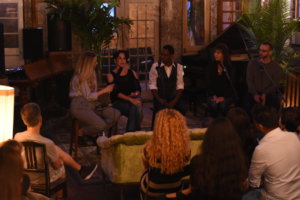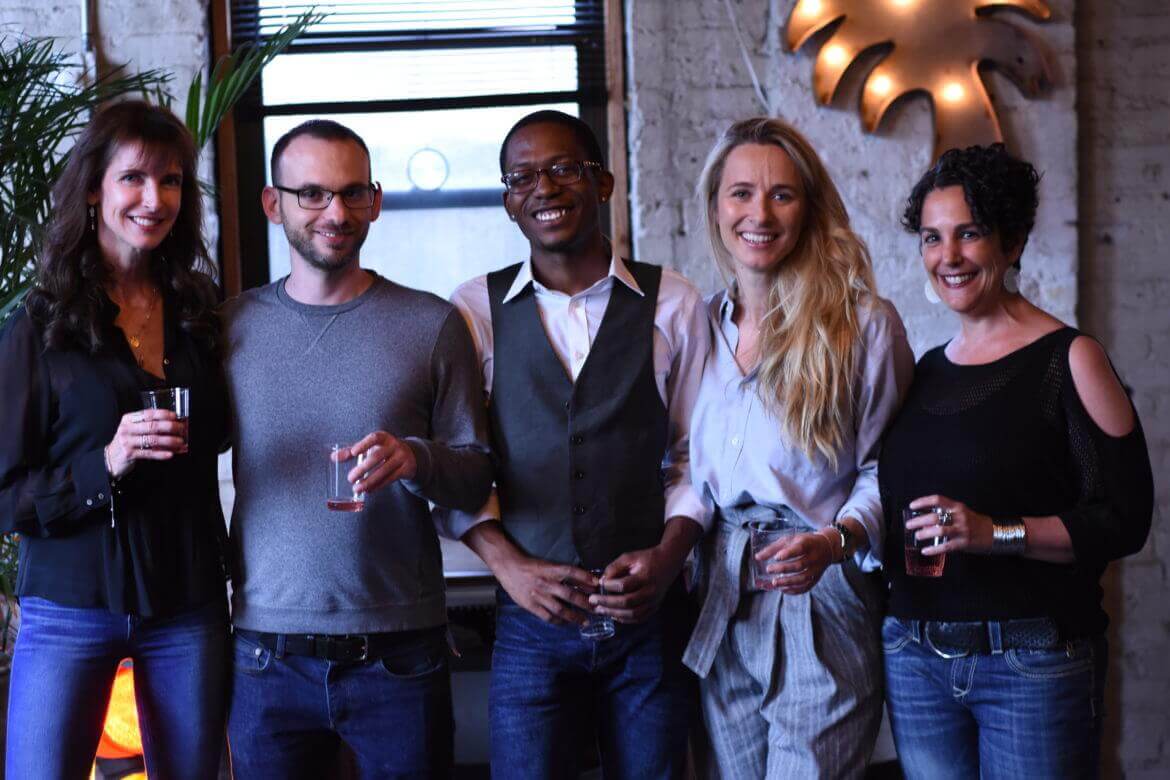(Psych n Sex) Technology is what we think of when we think of the future. Dr. Holly Richmond explained how technology can make “secrecy and shame less intertwined,” because it can be used as a conversation starter in many ways. Sharing fantasies via apps or messaging can be less intimidating than sharing in person. However, as the rest of the panel chimed in, it’s also easy to hide behind technology or use it as a crutch. Plenty of articles warn that yoursmartphone can get in the way of intimacy, and that screen time often overpowers face-to-face time.
Stephens-Davidowitz knows not everyone finds data analysis as thrilling as he does, but we can still learn a lot about others just by typing a question into the search box and seeing what Google suggests. For example, women ask Google, “is my husband gay?” more than they ask if their husbands are cheating, depressed, or alcoholics. And this worry isn’t one sided, Stephens-Davidowitz says, “gay test” is the #1 non-porn-related search by men following searches for gay porn. Leaving these men wondering: “If I watch gay porn, does that mean I’m gay?” But of course our fantasies and desires are not necessarily intertwined, and as Dr. Richmond put it, “what you want and what you watch are two different things.”
To keep with the theme of her podcast, Bryony Cole always poses this question to her guests: what does the future of sex look like to you?
Dr. Richmond claimed that the future is “distinguishing between what is education and what is entertainment.” Though understanding that difference may not happen for another decade. Prioritizing sexual education and media literacy in schools is a long shot, especially in the current political state, so I asked her if there are any small steps we can take towards that change. This inspired a post-panel discussion with a few other attendees on the importance of women creating the kind of porn they want, and more variety in porn in general. In a “world of sexuality where variance is normal,” Dr. Richmond reasoned that variety will make more sexual preferences less taboo and easier to talk about. Refining our vocabulary will give us the tools to do so, she added, if we first define terms like “sexual health” and “sex positive.”
Stephens-Davidowitz pointed out that we rarely identify ourselves with what we want. Try to find a Tinder bio that says, “looking for a girl with oversized nipples,” (yes, he said this is a real trend), or “I prefer anal to vaginal sex, swipe right if you agree!” He continued to say that that preference isn’t far off either since heterosexual vaginal sex is only about 20% of all porn watched these days.
If you’re too afraid to tell your partner that you want to have sex more often, you can find an article that boasts benefits of an active sex life. If you want to experiment with sex toys but feel uncomfortable bringing up the topic, follow toy companies on Instagram, subscribe to their email lists and forward that to a partner. Technology often aids the “show don’t tell” educational philosophy- If there’s something you want in bed but don’t know how to word it, find a porn video featuring what you want and switch to it after your Netflix date. Or if you’re not ready to show them, send it to them– via text, Snapchat, Instagram, WickrMe, share the link on a Google Doc; really the options are endless!
 Whether you think technology hinders or helps our social lives, it’s up to us as consumers to take advantage of the easy access, but avoid hiding behind avatars and social media perfection. Maintaining a private personal life is one thing, but keeping your real personality, sexuality, and relationships secret become a psychological burden. Just imagine how much we could learn if we talked to each other the way we talk to Google.
Whether you think technology hinders or helps our social lives, it’s up to us as consumers to take advantage of the easy access, but avoid hiding behind avatars and social media perfection. Maintaining a private personal life is one thing, but keeping your real personality, sexuality, and relationships secret become a psychological burden. Just imagine how much we could learn if we talked to each other the way we talk to Google.
Weigh in, everyone! Do you believe technology to be beneficial or detrimental to your sex life? We would love to hear your thoughts. Comment below!





